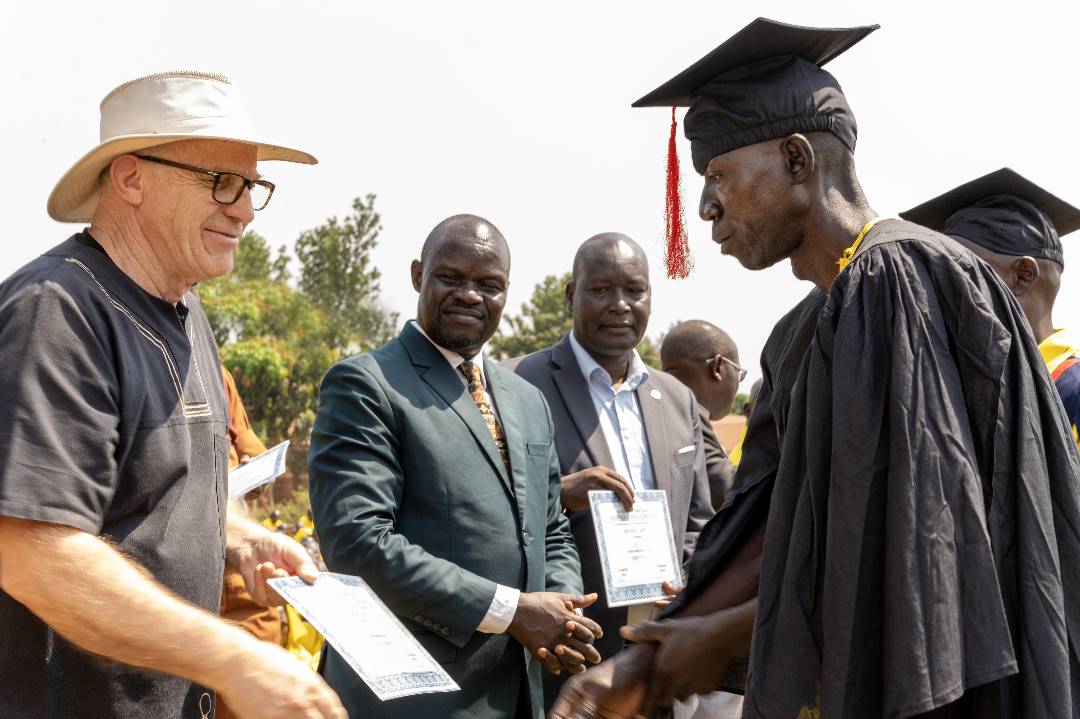Organizational development is a dynamic process that aims to improve the effectiveness and efficiency of an institution by fostering positive changes in its structure, culture, and operations. One remarkable example of such an initiative is currently unfolding at the Masindi Bible Satellite School in Uganda. This ongoing program, in partnership with the Pentecostal Churches of Uganda and its training arm, the Kampala School of Theology, is making significant strides in organizational development through its innovative prison ministry.
The Power of Collaboration
Collaboration is often the catalyst for transformation, and the collaboration between the Pentecostal Churches of Uganda and the Kampala School of Theology exemplifies this power. By combining their expertise in theology, education, and community engagement, they are creating a synergy that has the potential to reshape lives within the prison system.
The Unique Focus: Prison Ministry
Prison ministry is an integral component of this organizational development program. It recognizes the potential for personal growth, rehabilitation, and reintegration into society that incarcerated individuals possess. The Masindi Bible Satellite School’s commitment to prison ministry underscores the principle of second chances and forgiveness that lies at the core of their beliefs.
Transformation Behind Bars
The prison ministry initiative is designed to bring hope and holistic transformation to inmates. Through a combination of spiritual guidance, counseling, vocational training, and educational programs, the Pentecostal Churches of Uganda and the Kampala School of Theology are nurturing personal growth and self-improvement among inmates. This approach acknowledges the intrinsic worth of every individual and seeks to equip them with skills and knowledge that will aid in their successful reintegration into society upon release.
Education as a Catalyst for Change
Education is a cornerstone of this initiative, as the Masindi Bible Satellite School extends its academic resources to incarcerated individuals. By offering educational opportunities within the prison walls, the program aims to break the cycle of reoffending. Inmates can acquire valuable skills, pursue academic qualifications, and rediscover their sense of purpose. This educational aspect of the organizational development program not only benefits the inmates but also contributes to the overall upliftment of the prison environment.
Community Engagement and Beyond
The impact of the organizational development program extends beyond the prison walls. By engaging the wider community, the initiative aims to bridge the gap between incarcerated individuals and society. Community outreach, awareness campaigns, and collaborative events create a sense of empathy, understanding, and acceptance. This two-way interaction contributes to the reintegration process and challenges societal stigmas associated with former inmates.
Conclusion
The ongoing organizational development program at the Masindi Bible Satellite School, in collaboration with the Pentecostal Churches of Uganda and the Kampala School of Theology, exemplifies the potential of partnership, compassion, and education to transform lives. Through their commitment to prison ministry and holistic rehabilitation, they are not only shaping the future of incarcerated individuals but also fostering a positive societal change that embraces forgiveness and second chances. This initiative stands as a beacon of hope, reminding us all of the power of empathy, education, and collaboration in driving meaningful transformation.

